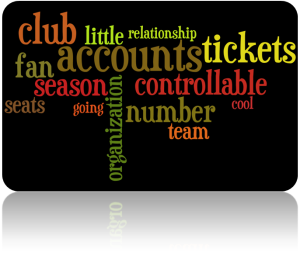 Delivering great customer service isn’t just about responding and reacting. It’s also about being proactive. Developing relationships involves reaching out first, not just extending our hand when somebody reaches out to us.
Delivering great customer service isn’t just about responding and reacting. It’s also about being proactive. Developing relationships involves reaching out first, not just extending our hand when somebody reaches out to us.
But it’s all too clear that those of us who are in service roles prefer those roles to sales, and when we think about proactively reaching out, often we think that we’re selling to others – Ick! However, if we don’t reach out to our clients or customers, we are not fully meeting their needs.
So, if we are not pushing products, why are we proactively reaching out to customers? Here are some examples of why to reach out.
Freshen: To keep the relationship fresh. If they haven’t heard from us except when they are buying something or complaining, those quiet periods are when relationships go stale. It’s when they view us more as a commodity than as a partner. We need to keep the relationships fresh.
Understand: Reach out to better understand them and their needs or issues. This can be via an informal survey; maybe as part of a conversation, you ask about how things are changing in their business or their lives. You’re trying to learn from them to better serve them.
Match-make: You reach out because you have a base understanding of their needs, and your organization has something that might help them, in particular. You’re trying to match who they are with what you can do for them. In some ways, we’re doing them a disservice if the customer has to go to your company for one thing and 3 other companies for other services – all of which you provide – but they don’t know that because we haven’t informed or educated them on all you can do for the customer.
Thank: You proactively reach out to convey appreciation and show that you value them. You literally reach out to say Thank You and to check-in on them. It makes them feel like an individual instead of an account number.
Request: You can even reach out to simply ask them if they know of anyone who might be a good fit with your business, who might benefit from a relationship like your customer has with your company. You’re not selling; you’re just giving them the opportunity to make a connection for a friend with you and your organization.
Great customer service includes reaching out to customers – be proactive without being pushy.
Signup for FREE Tips! Contact Us More Resources for You Visit Our Home Page






















